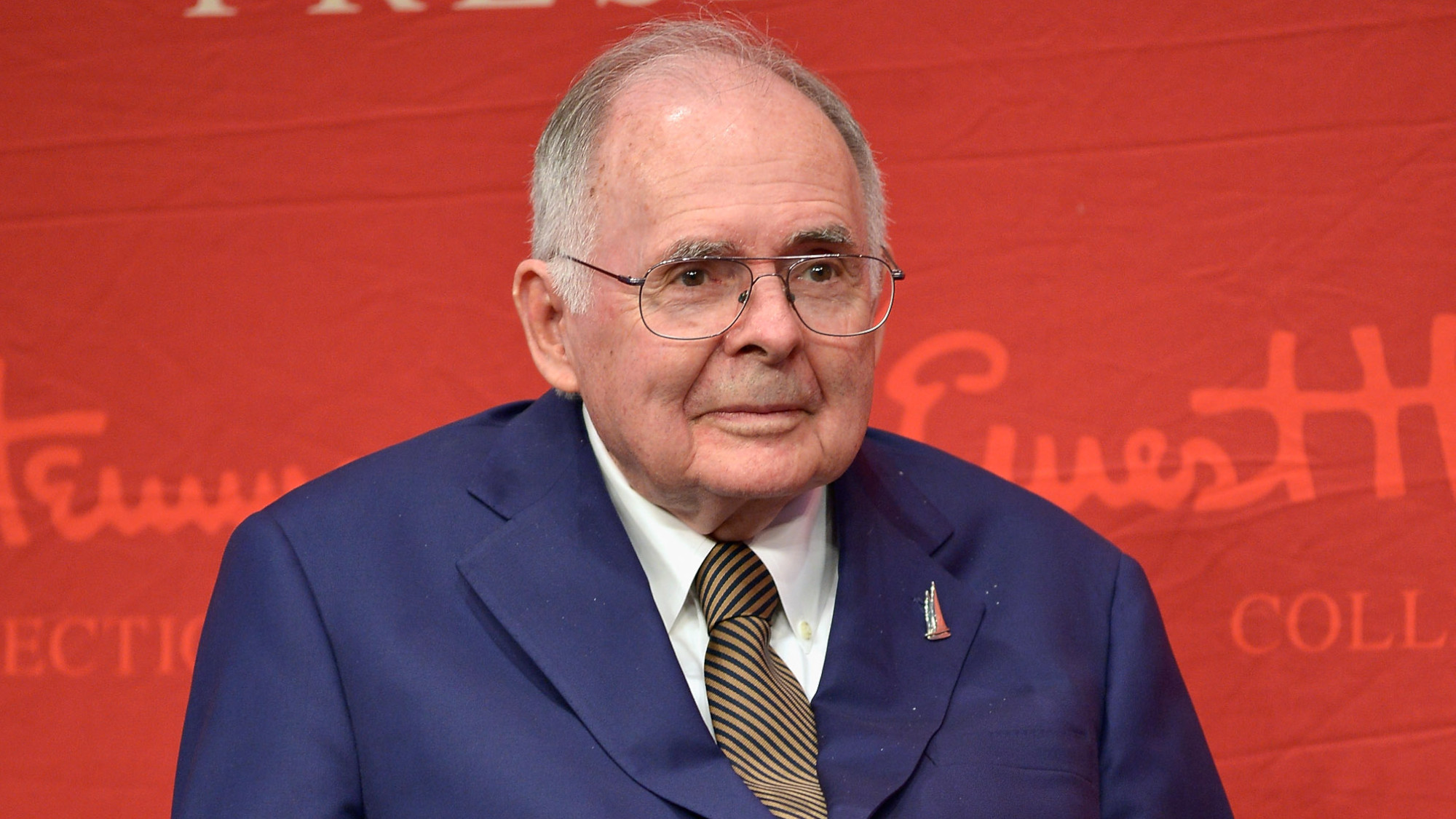Letitia Baldrige, 1926–2012
The manners guru who served the Kennedys
A free daily email with the biggest news stories of the day – and the best features from TheWeek.com
You are now subscribed
Your newsletter sign-up was successful
For decades, Letitia Baldrige was the nation’s leading arbiter of etiquette. In her syndicated newspaper column and some 20 books, the former social secretary to the Kennedy White House set out the basics of modern manners. Whoever reached a door first—man or woman—should open it. It was acceptable to cut salad with a knife, but impolite to end an email with an abbreviated “All best.” Baldrige firmly believed that the key to good manners was consideration for others rather than a strict set of rules. “There are major CEOs who do not know how to hold a knife and fork properly,” she said in 1992, “but I don’t worry about that as much as the lack of kindness.”
The daughter of a Republican congressman from Nebraska, Baldrige started her career in the late 1940s with the State Department. As social secretary at the U.S. Embassy in Paris, she made her first faux pas “by unknowingly seating a Frenchman next to his wife’s lover at a dinner party,” said The New York Times. On her return to the U.S., Baldrige was appointed public-relations director at New York jewelry firm Tiffany & Co. Then, in 1960, she received a phone call from a former classmate at Miss Porter’s School, Jacqueline Kennedy, who asked if Baldrige could help out at the White House.
Baldrige oversaw the glamorous state dinners and social gatherings—from jazz concerts to Shakespeare performances—for which the Kennedy White House became famous, said The Washington Post. She resigned in the summer of 1963, exhausted by the long hours. The assassination of President John F. Kennedy brought Baldrige back to the White House less than six months later. She assisted the First Lady in planning her husband’s funeral, “helping to create indelible, dignified images of a nation and a family at grief,” said the Los Angeles Times.
The Week
Escape your echo chamber. Get the facts behind the news, plus analysis from multiple perspectives.

Sign up for The Week's Free Newsletters
From our morning news briefing to a weekly Good News Newsletter, get the best of The Week delivered directly to your inbox.
From our morning news briefing to a weekly Good News Newsletter, get the best of The Week delivered directly to your inbox.
Baldrige later set up her own public-relations firm and became the nation’s go-to authority on good manners. But she worried she was fighting a losing battle. “We are not passing values on to our children,” Baldrige said in 1999. “[Families] are not sitting down at the dinner table talking about the tiny things that add up to caring human beings.”
A free daily email with the biggest news stories of the day – and the best features from TheWeek.com
-
 The Week Unwrapped: Do the Freemasons have too much sway in the police force?
The Week Unwrapped: Do the Freemasons have too much sway in the police force?Podcast Plus, what does the growing popularity of prediction markets mean for the future? And why are UK film and TV workers struggling?
-
 Properties of the week: pretty thatched cottages
Properties of the week: pretty thatched cottagesThe Week Recommends Featuring homes in West Sussex, Dorset and Suffolk
-
 The week’s best photos
The week’s best photosIn Pictures An explosive meal, a carnival of joy, and more
-
 Catherine O'Hara: The madcap actress who sparkled on ‘SCTV’ and ‘Schitt’s Creek’
Catherine O'Hara: The madcap actress who sparkled on ‘SCTV’ and ‘Schitt’s Creek’Feature O'Hara cracked up audiences for more than 50 years
-
 Bob Weir: The Grateful Dead guitarist who kept the hippie flame
Bob Weir: The Grateful Dead guitarist who kept the hippie flameFeature The fan favorite died at 78
-
 Brigitte Bardot: the bombshell who embodied the new France
Brigitte Bardot: the bombshell who embodied the new FranceFeature The actress retired from cinema at 39, and later become known for animal rights activism and anti-Muslim bigotry
-
 Frank Gehry: the architect who made buildings flow like water
Frank Gehry: the architect who made buildings flow like waterFeature The revered building master died at the age of 96
-
 R&B singer D’Angelo
R&B singer D’AngeloFeature A reclusive visionary who transformed the genre
-
 Kiss guitarist Ace Frehley
Kiss guitarist Ace FrehleyFeature The rocker who shot fireworks from his guitar
-
 Robert Redford: the Hollywood icon who founded the Sundance Film Festival
Robert Redford: the Hollywood icon who founded the Sundance Film FestivalFeature Redford’s most lasting influence may have been as the man who ‘invigorated American independent cinema’ through Sundance
-
 Patrick Hemingway: The Hemingway son who tended to his father’s legacy
Patrick Hemingway: The Hemingway son who tended to his father’s legacyFeature He was comfortable in the shadow of his famous father, Ernest Hemingway